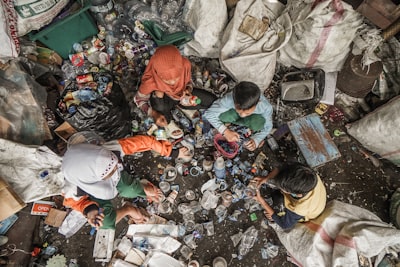Manila’s Waste Crisis: What the City’s Garbage Problem Reveals About Urban Management
The recent garbage crisis in Manila caught international attention, sparking critical questions about waste management, city politics, and sustainable urban solutions. With streets buried under uncollected refuse and political leaders trading blame, residents demanded answers and real solutions. What happened in the Philippine capital is more than a local issue—it’s a window into the challenges faced by fast-growing cities worldwide.
How Urban Politics Shape Waste Management: The Manila Experience
Political transitions often disrupt essential services, especially waste collection. As Manila saw, changes in leadership and contractual disputes can leave millions of residents in unsanitary and hazardous conditions. These transitions reveal:
- Fragility of outsourced services: Reliance on private contractors for trash collection makes cities vulnerable to billing disputes or political differences.
- Impact of unpaid debts: Contractual and financial mismanagement can paralyze city services, piling up more than just garbage—these failures erode public trust and health.
- Political blame games: During crises like this, outgoing and incoming officials often trade accusations instead of collaborating for urgent solutions.
Why Waste Management Matters for Public Health and Urban Livability
Manila’s garbage piles didn’t just offend the nose—they endangered public health. According to the World Health Organization, unmanaged waste increases disease risk, attracts vermin, and clogs drainage, exacerbating flooding, especially during monsoon season. Key points to consider:
- Health hazards: Rotting trash breeds pathogens and attracts rodents, posing direct risks to city dwellers.
- Environmental impact: Uncollected garbage often ends up in waterways, leading to pollution and flooding.
- Economic consequences: Urban cleanliness directly affects tourism, local business, and the city's image.
The Roots of Manila's Waste Problem: Debt, Density, and Development
Manila’s issues echo problems in many rapidly urbanizing cities:
- Overwhelming waste volume: Metro Manila generates more than 9,200 tons of waste daily, challenging even the most robust systems.
- Growing city, lagging infrastructure: As populations surge, waste infrastructure often fails to keep up.
- Budget priorities: Political leadership determines how resources are allocated. Debt crises, like in Manila, show what can happen when infrastructure is underfunded.
Strategies for Sustainable Urban Waste Management: What Can Manila and Other Cities Learn?
Residents and city leaders need to look beyond short-term fixes. Effective urban waste management requires:
- Contract transparency: Ensure that contracts with private collectors are transparent and payments are prioritized.
- Community participation: Encourage waste segregation and recycling at the household level to reduce collection load.
- Disaster planning: Have contingency plans for service continuity during political transitions or emergencies.
- Smart funding: Allocate adequate budgets and seek innovative financing for sustainable waste solutions.
- Accountability: Establish independent oversight to prevent misuse of public funds and ensure service consistency.
What Will It Take for Manila to Embrace Real Change?
As the world watches Manila, the city’s response could set a precedent—cities must invest in resilient waste management systems and guard against the disruptions of political change. Filipinos and global urban dwellers alike can push for transparency, community action, and leadership that prioritizes health and sustainability.
FAQ: Urban Garbage Crisis in Manila
Q: Why did Manila’s garbage collection fall apart? A: The crisis was triggered by unpaid debts to private contractors following a change in city leadership.
Q: What’s the health risk from uncollected garbage? A: Piles of waste can spread disease, attract pests, and worsen flooding by clogging drains.
Q: How can residents help during garbage crises? A: Store waste properly, segregate recyclables, and participate in community clean-ups where possible.
Q: What are long-term solutions for Manila? A: Transparent contracts, community engagement, sufficient funding, and political accountability are essential.
For more information on urban waste solutions:

Comments
No comments yet. Be the first to comment!